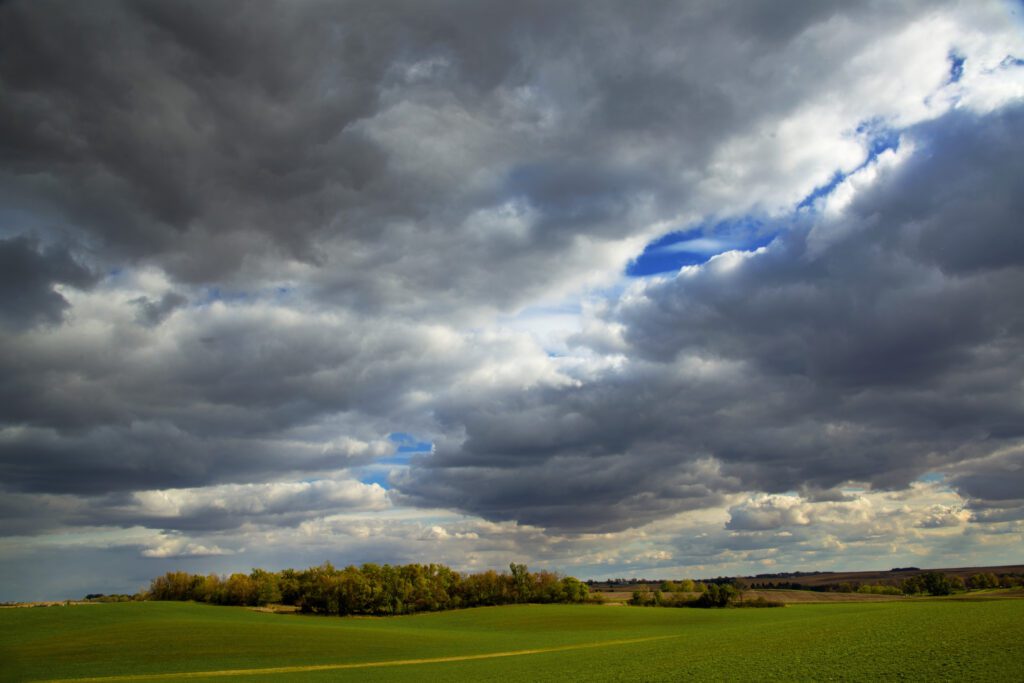
Seven Insights From the Poetry of Christine Mulvihill
Learn more about the gritty and poignant childhood cancer poems of a girl who faced the journey.
By Chris Lawrence
Perhaps you have not heard of Christine Mulvihill, a girl from Canada who faced cancer at an early age and wrote many childhood cancer poems about her experience.
But I believe you should, if you want to read some powerful poetry about what it is like to walk through childhood cancer.
Christine’s story, while not tied together neatly with a bow, certainly leaves room for hope.
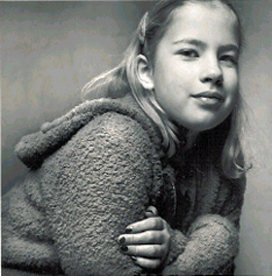
Christine was diagnosed with leukemia at the age of three and battled it for the next three years. She eventually went into remission but faced the challenging emotions of post treatment and survival, an experience that would dramatically shape her early years, even as she sought to return to a normal life.
We all face difficulties at some point in our lives, whether cancer or not, and we certainly need help and hope to rise above the darkness.
Christine Mulvihill’s childhood cancer poems
Christine’s writings offer inspiration for those in hard times. Written with skill and insight beyond her years, her poems are strikingly honest, sometimes raw and uncomfortable, but often point to good.
And the best part may be how some of her writing reveal the light and hope that she found in the otherwise dark and dreary landscape of childhood cancer (for more, skip to point number seven).
Here are my seven observations from the childhood cancer poems of Christine Mulvihill.
-
Childhood cancer is incredibly challenging.
Facing cancer at any age is difficult, but there is something especially challenging about facing it while you are young.
Christine certainly expressed this well in a poem called, “To Be Anyone But Me.”
“Even my smile can’t disguise
Those refuge tears in my eyes
Take a look inside my heart
And you’ll see my life has fallen apart.”
Ideally, our childhood years are meant to be carefree and happy, a time of learning and strengthening and thriving.
But that was not Christine’s experience. After diagnosis, she spent the next three years in and out of treatment. Doctors only gave her a 40% chance of survival.
Her story is more common than you might think. Nearly 16,000 kids are diagnosed with cancer each year in the United States, and another 300,000 worldwide.
-
Childhood cancer dramatically shapes the experience of kids and their family.
When it comes to childhood cancer, the challenges are acutely felt not just by the child, but the entire family. Some call this the ripple effect.
In other words, when one kid gets cancer, it immediately impacts the entire family and circle of friends around them. Suddenly everyone feels the fragility of life and battle for hope.
“Less than 40% chance is not what anyone would have hoped for,” she wrote in her journal about her situation. “But you can’t change the odds; you can only fight against them and I promised myself to keep on fighting until I was just like everyone else again, until I could wake up in my own bed and run free without that stupid IV. No matter how painful a struggle no matter how long, I would have fought to eternity to be healthy again.”
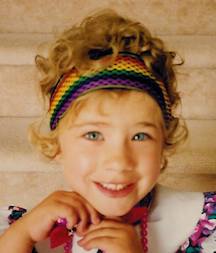
-
The emotional struggles for kids with childhood cancer are very real.
A study by JAMA pediatrics recently said that childhood, adolescent, and young adult cancer survivors were 57% more likely to develop depression after cancer.
Christine often shared honestly about the dark realities and feelings she was facing.
Cancer is rarely a quick experience, which is why the term “cancer journey” seems an appropriate term.
Christine captured her feelings about the journey in her poem, “No Escape”:
“My soul is a dark and gloomy place
It lacks all sense of beauty & grace
A room with an entrance but no escape
It takes on a small and lifeless shape.”
-
Writing can be a cathartic outlet for those going through hard times.
This certainly proved true for Christine. Journaling and especially writing childhood cancer poems, become a powerful way to express her emotions and share her experience—even if it may hold up a mirror to some of the unpleasant experiences of cancer.
“My world became a dark place and the only way I could get out my emotions was with poetry,” wrote Christine in her journal. “I wrote many poems, some about misery, depression, pain, life, hope and poems about death.”
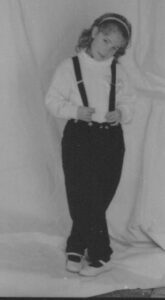
-
Finding hope can be hard.
Anyone who has lived long enough knows finding hope through all of the twist and turns of life can be challenging. Even more so with childhood cancer.
This quote from author K.M. Weiland captures the struggle:
“Hope is not some namby-pamby good feeling. Hope is difficult. Hope is ferocious. It is a phoenix clawing its way up from the ashes. It is powerful for the very reason that it requires tremendous courage.”
Christine, too, understood the struggle. These lines from “What If Faith Is Not Enough,” shed light on her struggle for hope:
“When reality finally hits you it hurts
When the truth comes into focus it’s brutally painful.
Hope isn’t always enough
It’s not always a happy ending.
What happens when faith is not enough?”
I like her honesty about the struggle to maintain hope and faith in the midst of her experience. It doesn’t do anyone much good to somehow express that finding hope and staying hopeful are easy. I think honesty and candor about the depth of struggle are key to unlocking hope that is sustaining.
-
Christine’s poems are a gift
Like the poem I just shared, the rest of Christine’s story doesn’t conclude so neatly. After being cancer free for several years, she developed a brain tumor that eventually took her life at age 17 (in March of 2005).
Her dad, who later discovered her writing, wants to share her childhood cancer poems widely, as a way to honor her life and raise awareness about childhood cancer. To read more of her poetry, see this website.
While Christine’s story may feel incomplete, she left us with the gift of sharing about her experience through her poignant words. While many poems share honestly, perhaps even uncomfortably and bleakly so at points, there was one poem in particular, “I Once Was Lost,” that showed how she found light in the darkness…glimpses of finding a powerful hope amidst the challenges—one I believe others can find, too.
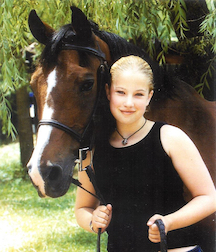
-
How Christine let hope in (and how you can too).
Beyond the pain and struggle, Christine’s life revealed an enduring source of hope and light she found through her faith.
When I asked her dad more about it, he said:
“Christine is a child of faith, she learned it from her grandmother from age 3 to 6 in the hospital. They both went to the chapel in the hospital every day she could and she would pray. And it carried her through.”
Her journals reveal more about this:
“My grandmother, a retired nurse herself, was a very special person…Every day she would take me to the chapel in the hospital and I would stare at the enormously realistic wood carved statue of Jesus. I would ask ‘even though you look like you are in more pain than me, can you ask your father to help me?’”
Then my grandmother and I would go back to my room and say this prayer together:
‘And now I lay me down to sleep
I pray you Lord my soul to keep
But if I shall die before I wake
I pray you Lord my soul to take.’”
Christine Mulvihill often drew upon these experiences and included thoughts about God and faith in some of her poems, including, “I Once Was Lost,” which is a reference to the popular hymn, Amazing Grace.
Finding spiritual hope
“I Once Was Lost,” reveals more about the spiritual hope she found, especially in these lines:
“Now I’m walking on water because I have Faith
This tortuous dungeon I have escaped
I hold His hand as He walks me to land
I bend down and kiss the merciful sand.
So happy to have found happiness again
Now the sun overpowers the rain
Amazing grace how sweet the sound
I once was lost but now am found.”
(for the full poem, see the link at the end of this article).
The lines “this tortuous dungeon I have escaped” and “I once was lost but now am found” seem to point to the spiritual hope that Christine found through a relationship with God. This source of hope is one that many others facing cancer have found as well.
Light is stronger than the dark
To me, Christine Mulvihill’s writing reveals how she let God’s light shine into an otherwise difficult and painful journey.
And often that is enough, as light is far more powerful than any darkness. Like these words from the book of John say: “The light shines in the darkness, and the darkness has not overcome it (John 1:5).”
Light eclipses darkness, and when we let the light in, the darkness does not have to win, no matter what we face. Even childhood cancer.
To learn more about inviting God into your cancer journey, see Let the Light In.
To learn more about how to begin a relationship with God, read Knowing God Personally.
To read Christine’s poem, see “I Once Was Lost.”
I have a question or comment
How to know God’s hope, strength and peace
Note: We are not doctors and we cannot answer your medical questions. However, we welcome your questions about finding hope and knowing God.
Footnotes: (1) James 4:14 NIV (2) 1 Corinthians 13:13, NLT. (3) 1 Peter 1:3 NIV (4) Jeremiah 29:11 NIV
